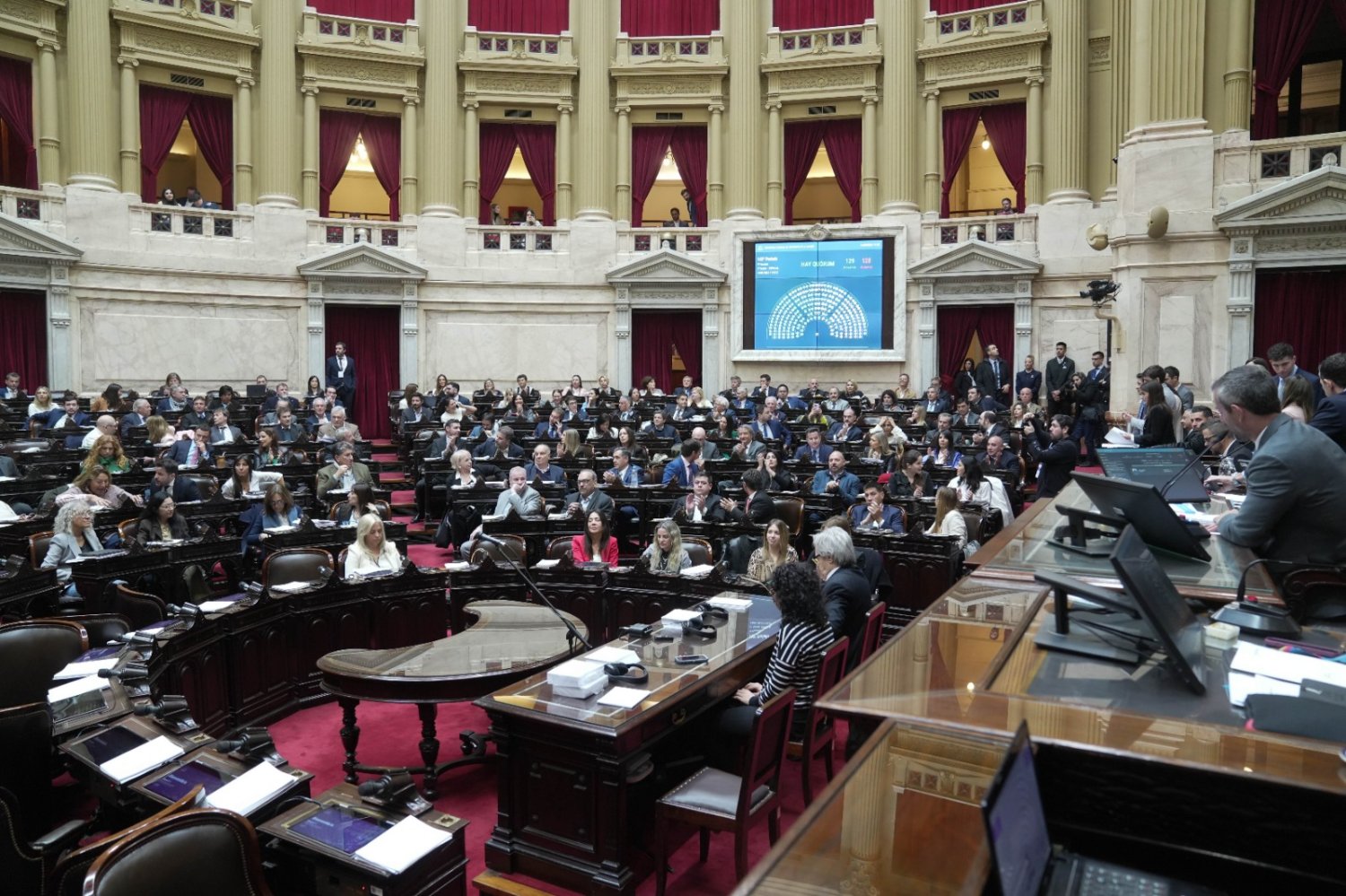
Javier Milei made use of the presidential veto for the first time: he did it for prevent retirees who receive the minimum from receiving an increase of approximately $17,000 and the modification is made mobility which was set by Decree a few months ago. A new demonstration that The libertarian president wants to rule like a king: by force of decrees and vetoes, bypassing Congress. The peculiarity is that Milei’s anger is against those who have suffered the most from the adjustment. In the first three months of 2024, pensions accounted for between 32.9% and 37.0% of the total adjustment according to CEPA calculations. The dilution of the purchasing power of retirement benefits is evident to anyone except the mercy who said this Sunday that “pensions flew away in dollars”. The deputy of the Left Front, Nicholas del Cañoreleased official data from the Congressional Budget Office: “The average purchasing power of pensions in the first 7 months of 2024 fell, compared to last year, by 29% in total and 18.5% for the minimum with bonus”.
The Congressional Budget Office reported that the average purchasing power of pensions in the first 7 months of 2024 fell, compared to last year, by 29% in total and 18.5% for the minimum pension with a bonus.
Rather than soaring, as Milei said, pensions plummeted. pic.twitter.com/3z2fv7O6Rb— Nicolas del Caño (@NicolasdelCano) September 2, 2024
Another peculiarity is that The retirement mobility law was voted in Congress by two thirds of those present in both Chambers. In the House of Representatives the result was 160 affirmative votes.72 negative votes and 8 abstentions, and In the Senate, it exceeded two-thirds by more than 10 votes: it had 61 affirmative votes and 8 negatives. Milei not only vetoed it anyway, but last Wednesday repressed the mobilization of retirees in front of Congress.
The possibility of overturning the presidential veto depends formally on whether Congress gets two-thirds of those present in both chambers to insist on the law passed. The first to speak out must be the Chamber of Deputies, as it was the original chamber that gave the partial sanction. Retiree organizations have been mobilizing every Wednesday to protest against the austerity measures and hunger that this government has increased. This week they will do it again and they hope that the number of people will grow.
The government has already started negotiations with its most loyal allies to block the possibility of insisting in the Chamber of Deputies. The government itself Milei had to “go down to the plain” of the thread that she claims to hate so muchto give Mauricio Macri the signal he was asking for between entrails and milanesas. That is why he met last Friday in Pink House with deputies from Freedom Advances, from PRO and the MID block of Oscar Zago (the former head of the ruling party bloc in the Lower House).
To go against the presidential veto, if there is perfect attendance, 172 votes are needed to insist on the new mobility in the House of Representatives. Seen from the other side: To defend the veto, the ruling party needs 86 votes.
Those who met in Casa Rosada with Milei, gather 77 votes in the House of Representatives: Freedom Advances contributes 37, the PRO other 37, and the MID de Zago 3. Seeing the vote on the half sanction, they would have secured another 4 votes: that of Lourdes Arrieta (which now has its monobloc after the scandal of the visit to genocidaires), that of Lopez Murphy (which is part of Pichetto’s block) and 2 of the Carolina Piparo’s block. If the floor is 81 votes, they need 5 more votes to ensure that the presidential veto against retirees is sustainedWhere can they come from?
The usual suspects?
Milei’s government has already been counting on the support of other allies in the Chamber of Deputies. On the one hand, There are 8 deputies from other blocks who were absent or abstained in the session that gave half-sanction to the new retirement mobility (in addition to those absent from the PRO who would now support the ruling party). They are those who value their vote the most after the veto. In addition, All eyes are on the UCR bloc who have already demonstrated their collaboration with the Ley Bases and a sector also helped the government in the session for the DNU of the reserved funds for spies. Although radicalism was the driving force behind this law, it is not ruled out that there will be surprises due to pressure from governors.
Who are the deputies who could support Milei’s veto against retirees?
On the one hand there are the 3 Tucumans from the Union for the Homeland who answer to the governor Jaldo. Since Milei took office, they have become very faithful allies of the ruling party. They were absent from the session that gave half-sanction to the new retirement mobility. They are Elia Fernandez, Gladys Medina and Agustin Fernandez.

There were two other deputies absent from the bloc Federal Meeting led by Miguel Ángel Pichetto. They are Jorge Avila from Chubut (ally of Governor Ignacio Torres of the PRO), and Francisco Morchio from Entre Rios (ally of Governor Rogelio Frigerio of the PRO).

Hay 3 deputies who are allies of the ruling party, but opted to abstain when the vote was taken. They are the Tucuman Paula Omodeo of CREO, the seal of the former deputy “yellow jacket” Olmedo; and the Sanjuaninas Maria de los Angeles Moreno and Nancy Picon from the “Production and Work” bloc (allies of Governor Orrego).

Las suspicions about the UCR bloc in the House of Representatives are the order of the day. So much so that this Monday, the party president and senator Martin Lousteaucould not ensure that all of its legislators will reject the veto. In Diego Iglesias’ program on Radio con Vos he said “I hope there is a common vision (…) I want to believe that we will defend in both chambers the ideas that we promote and explain”. It was not by chance that he mentioned the deputy Mendoza native Lisandro Nieri who answers to Governor Cornejo: “Nieri, who was the finance minister of Mendoza, explained the project in the House of Representatives”. Cornejo is pointed out as the radical governor who puts the most pressure on his troops in Congress to support Milei’s government. There were even 8 radical deputies who defended the DNU of reserved funds for the SIDE: in addition to Nieri, the Mendoza native Pamela Verasay, José Tournier (Corrientes), Roxana Reyes (Santa Cruz), Luis Picat (Córdoba), Pablo Cervi (Neuquén), Mariano Campero (Tucumán) and Martin Arjol (Misiones). There are those who put the focus on this list due to the new dispute that is opening up in the face of the veto against pensions.

For now, votes are not guaranteed either to oppose or defend the veto. In the meantime, the presidential veto will turn to the Budget and Finance Committees (chaired by the official Espert) and Forecast (chaired by the radical Brouwer de Koning). The debate will begin there, but the outcome in the chamber is still uncertain. The pensioners’ organizations that have been mobilizing are calling for the streets to tip the balance and they already have the support of the left. which is present in every call they make. The retirees demanded that the CGT leadership call for a strike. So far, the Peronism responded with a statement in X of the trade union center and with a collection of signatures by page change.org.
Only with the strike and massive popular mobilization can we defend retirees and public universities, paving the way to defeat the entire chainsaw plan of Milei and his allies. https://t.co/OLXpwKlHZZ
— Nicolas del Caño (@NicolasdelCano) September 2, 2024
Source: www.laizquierdadiario.com

